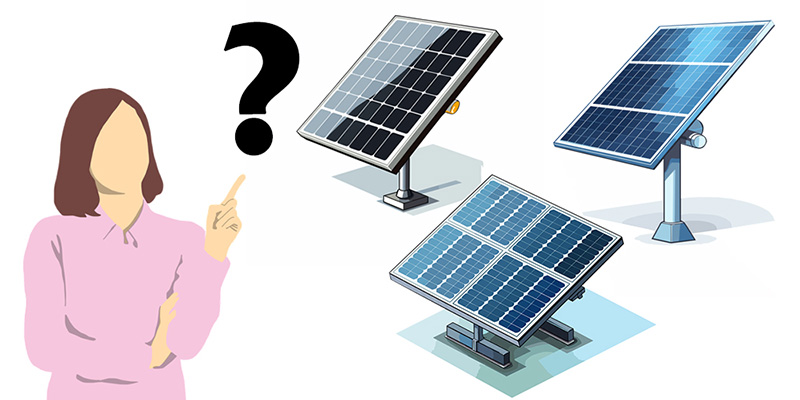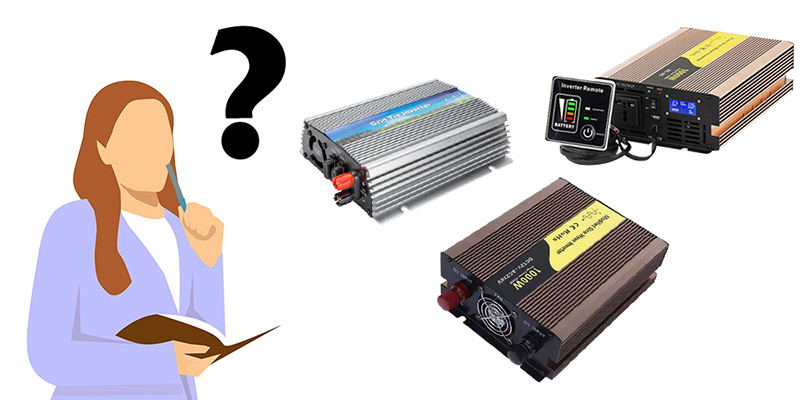Solar Panel & Inverter Buying Guide
As the world embraces renewable energy sources to combat climate change and reduce our reliance on fossil fuels, solar panels have gained immense popularity. Solar panels harness the power of the sun to generate electricity, making them an eco-friendly and cost-effective choice for homeowners and businesses alike. However, with a plethora of options available in the market, choosing the right solar panel system can be overwhelming. This comprehensive solar panel buying guide will walk you through the key factors to consider, ensuring you make an informed decision that suits your needs and budget.

- Understanding Solar Panels. Before diving into the buying process, it's essential to have a basic understanding of how solar panels work. Solar panels are composed of photovoltaic cells that convert sunlight into electricity. This electricity can either be used immediately or stored in batteries for later use. Solar panels are typically mounted on rooftops or ground-mounted arrays to maximize exposure to sunlight.
- Assessing Your Energy Needs. The first step in purchasing solar panels is to determine your energy consumption. Review your utility bills to understand your monthly and annual electricity usage. This information will help you calculate the size of the solar panel system you need to cover your energy needs. Keep in mind that the size of the system will also depend on factors such as location, shading, and panel efficiency.
- Quality. Investing in high-quality solar panels is essential for long-term performance and durability. Research reputable solar panel manufacturers and read customer reviews to ensure you're getting a reliable product. Look for certifications such as CE and IEC to verify the panel's quality and safety standards.
- Panel Efficiency. Panel efficiency is a crucial factor to consider. Higher efficiency solar panels can generate more electricity in the same amount of space, making them ideal for smaller rooftops. However, they tend to be more expensive. Balance your budget with efficiency to determine the best fit for your needs. To help shortlist your options, it’s important to know that the average panel efficiency is around 15%-22%. With this in mind, panels within this range or even higher will prove to be a worthy investment.
- Look for a Durable and Weatherproof Construction. The construction of your solar panel is one of the most important things to consider when buying them. The better quality it is, the longer it will last, so you would not have to replace it anytime soon. Some solar panels have a very flimsy construction, so they can easily break if dropped or bumped into something else. The best portable solar power panels are made from durable materials like aluminum or plastic that can withstand a lot of wear and tear without getting damaged too quickly.
Not only is there a lot to consider when choosing solar PV panels, but inverter shopping as well. Solar panels and inverters can be used together as well, so here we go over the points to consider when buying a solar inverter.

- Determine Your System Size and Capacity. The size of your solar panel system and your energy needs will influence the choice of inverter. Calculate the total capacity of your solar panels and the peak power output you expect from them. This information will help you select an inverter that can handle the load efficiently.
- Monitoring and Connectivity. Many modern inverters come with advanced monitoring features that allow you to track the performance of your solar panel system in real-time. Consider whether you want this functionality and whether the inverter can connect to your home's Wi-Fi or a dedicated monitoring platform.
- Compatibility with Battery Storage. If you plan to integrate a battery storage system with your solar panels in the future, make sure the selected inverter is compatible with the batteries you intend to use. Solar hybrid inverters are specifically designed for this purpose.
- Installation and Maintenance. Consider the ease of installation and maintenance when choosing a solar inverter. Some inverters may require more complex installation procedures, while others are designed for straightforward setup. Maintenance requirements should also be minimal.
Investing in solar panel or inveter is a significant step toward a more sustainable and cost-effective energy future. This buying guide has provided you with the essential information needed to make an informed decision. Remember to assess your energy needs, consider panel types and efficiency, prioritize quality and warranty. With careful planning and the right choices, you can harness the power of the sun to reduce your carbon footprint and save on energy costs for years to come.
